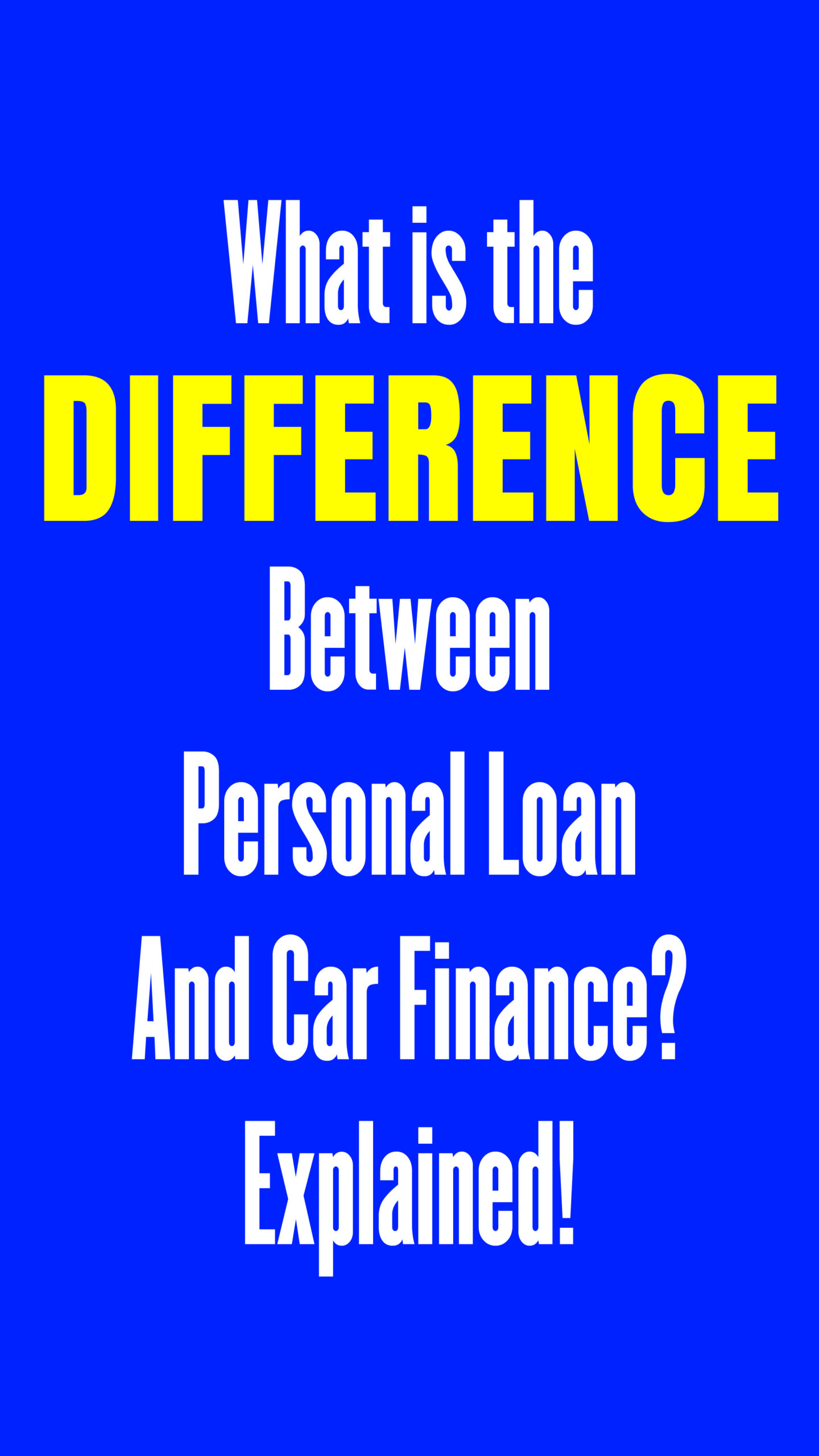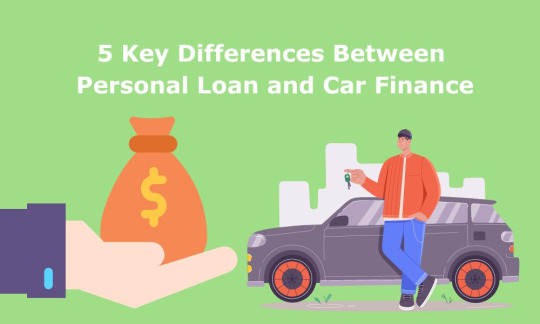A personal loan provides funds for various needs, while car finance specifically funds the purchase of a vehicle. Both have different terms and conditions.
Understanding the distinction between personal loans and car finance is crucial for making informed financial decisions. Personal loans are versatile, allowing you to use the funds for any purpose, such as home improvements or debt consolidation. Car finance, on the other hand, is a loan specifically designed to purchase a vehicle.
Car finance typically involves lower interest rates compared to personal loans because the car serves as collateral. Knowing these differences helps you choose the right financial product, ensuring it aligns with your specific needs and financial situation. Always consider interest rates, repayment terms, and your financial goals before committing.
Loan Purpose
Understanding the loan purpose is essential when deciding between a personal loan and car finance. Both serve distinct needs and come with different terms. Here, we break down the main differences based on the loan purpose.
Personal Expenses
A personal loan can be used for various personal expenses. These might include:
- Home improvements
- Medical bills
- Wedding costs
- Debt consolidation
Personal loans offer flexibility. You can use the funds for almost anything. This makes them versatile, but they might come with higher interest rates.
Vehicle Purchase
Car finance is specifically for buying a vehicle. This includes:
- New cars
- Used cars
- Motorcycles
- Trucks
Car finance often has lower interest rates. This is because the vehicle itself serves as collateral. It is designed to help you get a vehicle without paying the full price upfront.
| Loan Type | Primary Purpose |
|---|---|
| Personal Loan | Any personal expense |
| Car Finance | Purchasing a vehicle |
Loan Amount
Understanding the loan amount differences between personal loans and car finance is crucial. This helps you make an informed decision. Each type of loan offers unique benefits and limitations.
Flexibility In Personal Loans
Personal loans offer greater flexibility in loan amounts. You can borrow a small or large amount. This depends on your need and creditworthiness. The lender will decide the maximum amount you can borrow.
You can use personal loans for various purposes. This includes consolidating debt, home improvements, or even buying a car. The flexibility makes personal loans appealing. You can tailor the loan amount to your needs.
Specific Amounts For Car Finance
Car finance, also known as auto loans, is more specific. The loan amount is based on the car’s price. You cannot borrow more than the car’s value. This ensures that the loan is used only for purchasing the car.
Car finance often requires a down payment. The loan covers the remaining cost of the car. This makes car finance less flexible but straightforward. It is designed specifically for vehicle purchase.
| Loan Type | Loan Amount Flexibility |
|---|---|
| Personal Loan | Flexible; can be used for any purpose |
| Car Finance | Specific; based on the car’s value |
Interest Rates
Understanding interest rates is crucial when comparing personal loans and car finance. Interest rates determine the overall cost of borrowing. They directly impact your monthly payments and total repayment amount.
Fixed And Variable Rates
Interest rates can be fixed or variable. Fixed rates remain the same throughout the loan term. This provides predictable monthly payments. It helps in budgeting and financial planning.
Variable rates, on the other hand, can change over time. They are often tied to a benchmark interest rate. Variable rates may start lower than fixed rates. But they can increase, making your payments unpredictable.
Interest Rates For Car Loans
Car loans typically have lower interest rates compared to personal loans. This is because the car serves as collateral. Lenders face less risk with secured loans. Therefore, they offer better rates.
Car loan interest rates can also be fixed or variable. Most borrowers prefer fixed rates for car loans. This ensures stable monthly payments throughout the loan term.
Some lenders may offer promotional rates for car loans. These rates are usually lower for a limited period. Always read the fine print to understand the terms.
| Loan Type | Interest Rate Type | Typical Rate Range |
|---|---|---|
| Personal Loan | Fixed or Variable | 5% – 36% |
| Car Loan | Fixed or Variable | 2% – 10% |
Choosing between a personal loan and car finance depends on various factors. Understanding interest rates helps make an informed decision. Always compare rates from different lenders. This ensures you get the best deal possible.

Repayment Terms
Understanding the repayment terms is crucial for any loan. Different loans have different repayment plans. Personal loans and car finance have unique terms. Let’s explore them further.
Duration Of Personal Loans
Personal loans usually offer flexible repayment terms. The duration can range from 12 to 60 months. This flexibility allows borrowers to choose a term that suits their budget. Generally, a shorter loan term means higher monthly payments but less interest overall. A longer term means lower monthly payments but more interest over time.
Car Finance Repayment Plans
Car finance loans often have fixed terms. Typically, these terms range from 24 to 72 months. Car finance terms are specifically designed for vehicle purchases. The car itself acts as collateral. This usually results in lower interest rates compared to personal loans. However, longer repayment periods can increase the total interest paid over time.
| Loan Type | Typical Duration | Interest Rates | Collateral |
|---|---|---|---|
| Personal Loan | 12 to 60 months | Higher | None |
| Car Finance | 24 to 72 months | Lower | Car |
To summarize:
- Personal loans have flexible terms.
- Car finance loans have fixed terms.
- Personal loans do not require collateral.
- Car finance loans use the car as collateral.
Collateral Requirements
Understanding the collateral requirements for personal loans and car finance is crucial. Knowing the differences helps in making an informed decision.
Unsecured Personal Loans
Personal loans often do not require collateral. This means you don’t need to pledge any assets. They are known as unsecured loans. Lenders approve these loans based on your credit score and income. The process is generally quicker as there is no need to value any collateral. Below is a quick overview:
| Factor | Unsecured Personal Loans |
|---|---|
| Collateral | Not Required |
| Approval Time | Faster |
| Risk for Borrower | Lower |
Secured Car Finance
Car finance typically requires collateral. In this case, the car itself acts as collateral. These are known as secured loans. Lenders place a lien on the car. This means they can take the car if you miss payments. The approval process may be slower due to vehicle valuation. Here’s a summary:
| Factor | Secured Car Finance |
|---|---|
| Collateral | Required (Car) |
| Approval Time | Slower |
| Risk for Borrower | Higher |
Both personal loans and car finance have their pros and cons. Your choice should depend on your financial situation and needs.

Credit: www.brightmoney.co
Credit Score Impact
Understanding the impact of credit scores is crucial when choosing between a personal loan and car finance. Both options can affect your credit score differently. Knowing these differences helps in making an informed decision.
Effect On Credit For Personal Loans
Personal loans can impact your credit score in various ways. When you apply for a personal loan, lenders perform a hard inquiry on your credit report. This can temporarily lower your score by a few points.
Once approved, the loan amount adds to your total debt. Paying off the loan on time can improve your credit score. This shows responsible credit behavior.
Missed payments or defaulting on the loan can severely damage your credit score. Consistent, timely payments are key to maintaining a good score.
Credit Considerations For Car Finance
Car finance also involves a hard inquiry, which can temporarily affect your score. The loan amount is typically tied to the value of the car.
Regular, on-time payments can positively influence your credit score. Car loans contribute to a credit mix, which can improve your score.
Failure to meet payments can lead to repossession of the car. This can have a significant negative impact on your credit score.
Comparing the two, both personal loans and car finance have similar initial impacts. The key difference lies in the collateral involved and how the loan is managed over time.
Application Process
The application process for personal loans and car finance differs. Understanding these differences helps you choose the right option. This guide breaks down the steps for each type.
Applying For Personal Loans
To apply for a personal loan, follow these steps:
- Research lenders: Compare interest rates and terms.
- Check your credit score: A higher score means better rates.
- Gather documents: You’ll need identification, income proof, and bank statements.
- Fill out the application: Submit your details online or in-person.
- Wait for approval: This can take a few hours to a few days.
Steps To Secure Car Finance
Securing car finance involves these steps:
- Choose a car: Decide on the car make and model.
- Select a dealer: Pick a reputable car dealer.
- Check financing options: Compare dealer financing and bank loans.
- Submit an application: Provide personal and financial details.
- Get pre-approval: This helps in negotiating the car price.
- Finalize the loan: Sign the agreement and take the car home.

Credit: medium.com
Pros And Cons
When deciding between a personal loan and car finance, understanding their pros and cons is crucial. Each option has its unique advantages and disadvantages. This section will help you make an informed decision by comparing these two financial products.
Advantages And Disadvantages Of Personal Loans
Personal loans offer several benefits and drawbacks. Here are the key points:
| Advantages | Disadvantages |
|---|---|
|
|
Pros And Cons Of Car Finance
Car finance is another popular option. Here are its main pros and cons:
| Pros | Cons |
|---|---|
|
|
:max_bytes(150000):strip_icc()/pros-cons-personal-loans-vs-credit-cards-v1-4ae1318762804355a83094fcd43edb6a.png)
Credit: www.investopedia.com
Frequently Asked Questions
Is It Better To Take Out A Personal Loan Or Auto Loan?
An auto loan is usually better for buying a car. It offers lower interest rates and longer repayment terms. Personal loans can be more flexible but often have higher interest rates. Consider your financial situation and loan terms before deciding.
What Is The Difference Between A Personal Loan And A Car Title Loan?
A personal loan is unsecured, based on credit score. A car title loan is secured, using your vehicle as collateral.
Is It Better To Finance A Car Or Loan From Bank?
Financing through a dealer often offers convenience and promotions. Bank loans may provide better interest rates and flexible terms. Choose based on rates and terms.
Can A Personal Loan Be Used For A Car?
Yes, you can use a personal loan to buy a car. Personal loans offer flexibility in how you use the funds.
Conclusion
Choosing between a personal loan and car finance depends on your needs. Personal loans offer flexibility. Car finance often provides better interest rates. Evaluate your financial situation and goals. Make an informed decision that best suits your circumstances. Understanding the differences helps you secure the best deal for your needs.

